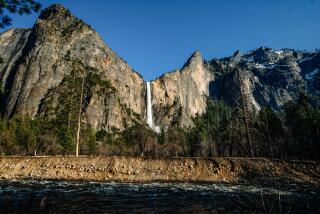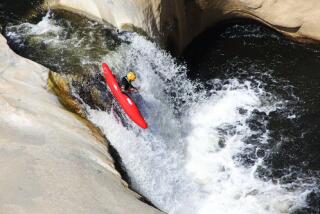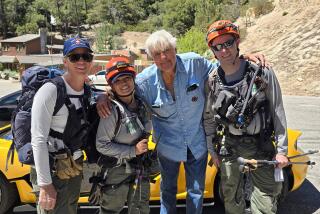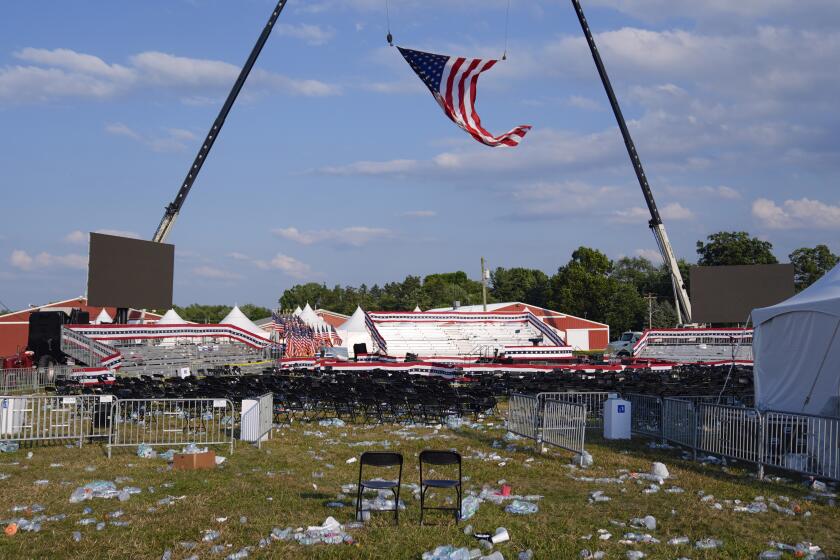Seattle hiking writer Karen Sykes, 70, died pursuing her passion
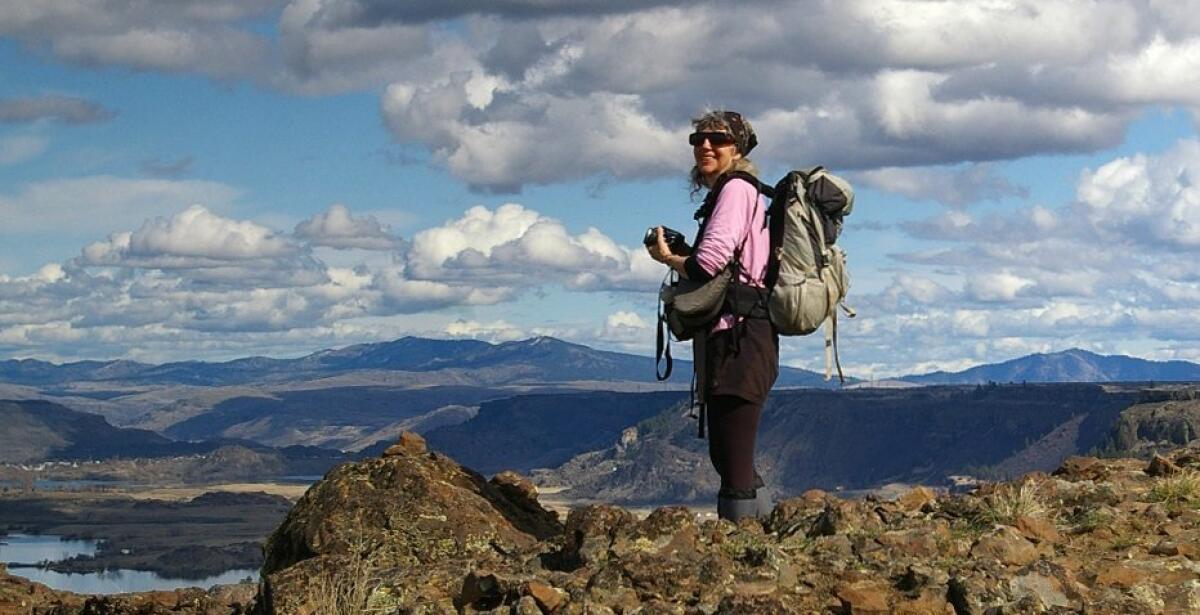
One of the last things Karen Sykes would ever publish was a modest blog post about a modest trail in an out-of-the-way part of Washington state.
In it, the Seattle poet and outdoor writer brought good tidings from Snohomish County: She had found trees that “reach down as if to drink from the river,” as well as lonesome places where a wandering, solitary hiker could “go Zen.”
The dispatch would be a fitting coda for Sykes, 70, a well-known hiker and journalist who forged a life out of finding such lost places in the Northwest, then telling her readers about them in loving yet practical prose.
“Though I’m not young, I still enjoy the challenge of rugged trails, obscure trails, abandoned trails and looking for artifacts even if the price is a losing battle with Devil’s Club, salmonberry, rotting stumps and nettles,” Sykes confessed in her final blog post earlier this month. “Sometimes it just feels good to tussle with Mother Nature; it builds character.”
She would never get to write about her final tussle with nature, which came unexpectedly last week inside Mt. Rainier National Park, which she had spent much of her career exploring.
Sykes and her hiking partner and boyfriend, Bob Morthorst, were trekking the Owyhigh Lakes trail on June 18 when they encountered melting snow. Morthorst thought that made continuing on the eight-mile trail too difficult, a park spokeswoman said. The park had issued an alert that melting snow could be dangerous to hikers.
Sykes continued alone into steep and rugged terrain, agreeing to meet Morthorst later. He reported her missing about 10:45 p.m.
One parks official said she had enough survival gear for at least one night. During the three-day search, hopes for her survival were high because she was so experienced in the wilderness.
But rescuers found her body Saturday, in the kind of place where she had spent much of her life: off the trail. Officials ruled her death an accident, listing hypothermia as the cause and arteriosclerotic vascular disease, a type of hardening of the arteries, as a contributing factor.
News of her death rippled through the Washington hiking community, where Sykes was well known and beloved.
Reached by phone Monday evening, Morthorst said he was too devastated to talk about what had happened, but added that “no one would absolutely be more shocked at all the attention that this has gotten than Karen.”
Friends and readers praised Sykes as a tireless and amiable hiker who was quick to offer kindness.
“If you met her on the trail, you would think she was 23,” said a friend, Don Geyer, a nature photographer in Renton, Wash., who noted that Sykes had recently completed a 13-mile run in west Seattle.
“Hiking and writing about it, about the outdoors in general, that was her passion,” Geyer said. “She loved it, she lived for it, she got out as often as she could. She was on a fixed income, so she had to scrape to make things work, carpool with other people. That’s what she lived for.”
In public posts on Facebook, Sykes’ daughter, Annette Shirey, wrote that she wanted her mother “to be revered for the writer and lover of nature she was and the beautiful ways she represented Seattle and the Northwest in her photography and writing.” As of Monday, Shirey wrote that no date for memorial services had been set.
Shirey added that her mother had told her recently if that she died, she would prefer to die in the mountains.
But by Sykes’ own account, the mountains were not her first love. She recalled that her writing career began with poetry one day in 1960, when a teacher played a phonograph record of Dylan Thomas reading one of his works.
“The words and the tone Thomas used to present his words stirred a hunger and a yearning within me that nothing has ever been able to satisfy,” Sykes recalled in 2009. “The closest I came to being able to ‘feed’ this yearning was to become a poet myself.”
She wrote under the name Karen Waring, doing readings around Seattle.
On one of her blogs, Sykes posted a photo of herself from the late 1960s looking stylish in a pale trench coat and leather riding boots, and mused over the changes in her life.
“Back in those days I wore nothing but high heels, smoked 2-3 packs of cigarettes a day and drank a lot,” Sykes wrote in 2009, adding cryptically that there “have been marriages and there have been deaths. I never thought I’d live to be this old. I hope I can still say that 20 years from now.”
She published two books of poetry in the 1970s.
At some point, Sykes “found the mountains,” as she put it, trading in high heels for hiking shoes.
“I still believe that the mountains chose me to write about them,” she recalled.
Sykes would go on to write a popular weekly hiking column for the Seattle Post-Intelligencer, as well as two books, “Best Wildflower Hikes: Washington” and “Hidden Hikes in Western Washington,” in addition to many other freelance writing assignments.
Sykes wrote in her 2002 introduction to “Hidden Hikes” that the guide was “written for the hiker who wants to step off popular trails and experience solitude.” Her book, she wrote, was intended for “experienced hikers with a sense of adventure who also have route-finding skills.”
She had those skills aplenty, but if she had health problems while hiking by herself last week, she had taken no one with her who could have helped her.
Sykes’ friends remembered her stamina and enthusiasm.
Geyer said he had trouble scheduling time to hike with her because she liked to go during the work week to be “away from the crowds.”
“Every trip she would come back and write about,” Geyer said. “You could sense how important it was to her, what the trip meant to her, what the experience meant to her.”
On Sykes’ personal website, she said that “other than deteriorating vision and loss of some hearing I am almost as strong as I was 20 years ago,” adding that she had never broken a bone or had an injury worse than a sprained ankle, despite some close calls.
“My knees, back, and ankles are in good condition and I hike/scramble without the need for poles,” Sykes wrote.
In the final week of her life, she posted photos of recent visits to scattered Washington locales, including the Woodland Park Zoo and the Frenchman Coulee trail in eastern Washington.
Her poet’s eye, as seen through a camera’s lens, showed she liked flowers and ruins, including some Buddhist statues that, perhaps like her, had appeared nearly impervious to the wear of time.
“All paths lead nowhere,” Sykes wrote in a caption for the statues, “but why is it so?”
Times staff writer James Queally contributed to this report.
Follow @MattDPearce for national news
More to Read
Sign up for Essential California
The most important California stories and recommendations in your inbox every morning.
You may occasionally receive promotional content from the Los Angeles Times.
